Table of Contents
1. Introduction: Deciphering the Legality of IPTV
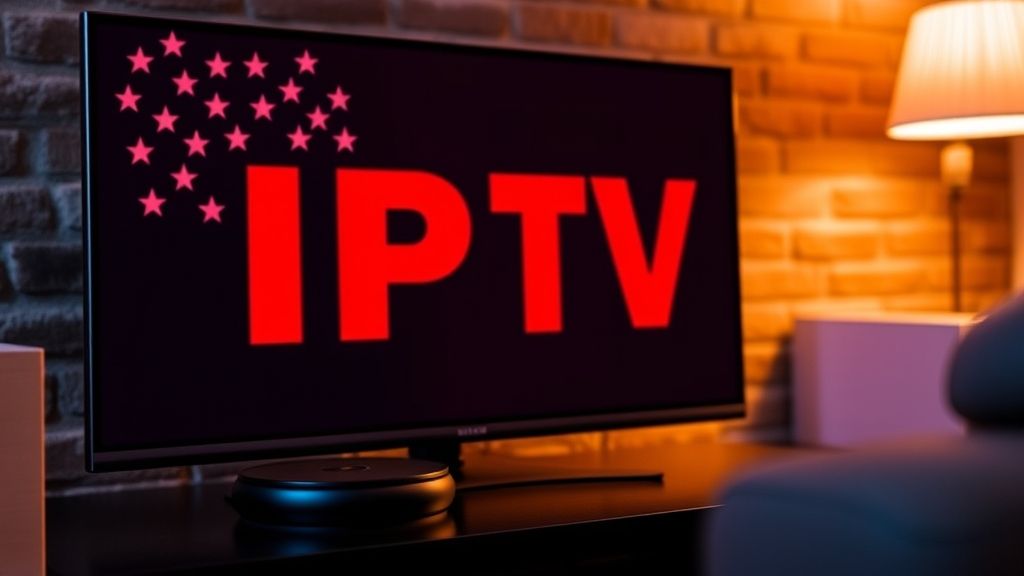
The proliferation of Internet Protocol Television, or IPTV, has dramatically altered the way consumers access and enjoy media content. As a technology that delivers television programming over the internet, it has presented a compelling alternative to traditional cable and satellite services, promising greater flexibility, lower costs, and a wider array of content. However, with this convenience comes a critical question that many users are grappling with: is IPTV legal in the USA? This is not a simple yes-or-no question, and a thorough understanding requires delving into the intricate layers of US copyright law, federal regulations, and the fundamental differences between legitimate and illegitimate services.
The term “IPTV” itself is a neutral descriptor of a delivery method; its legality is entirely dependent on the source of the content being streamed. The confusion arises because the market is saturated with a wide range of services, from well-known, licensed providers like Hulu, Sling TV, and YouTube TV, to thousands of unregulated, illicit operators that illegally broadcast copyrighted material. This article aims to provide a comprehensive, expert-level analysis of the legal landscape surrounding IPTV in the United States, offering clear guidance to consumers, content creators, and industry stakeholders.
By examining the core principles of US copyright law, the role of key legislation like the Digital Millennium Copyright Act (DMCA), and recent legal challenges, we will provide a definitive answer to the question of is IPTV legal in the USA and equip readers with the knowledge to make informed decisions.
The technological shift from traditional broadcast signals to internet-based streaming has created a legal gray area that both consumers and legal systems are still working to define. For years, the focus of content piracy was on file-sharing platforms like BitTorrent, but the rise of live streaming and IPTV has shifted the battleground.
While the act of a user watching a pirated stream was once considered less of a legal risk than actively downloading and distributing copyrighted files, recent legislative changes, particularly the Protecting Lawful Streaming Act, have made it clear that federal authorities are increasingly targeting individuals and entities involved in the illegal streaming ecosystem. The stakes are higher than ever, not just for the illicit service providers who face severe penalties, but also for the unsuspecting consumers who may be putting themselves at risk of civil action or, in rare cases, criminal prosecution.
This deep-dive into the legalities of IPTV will not only clarify what is permissible but also highlight the significant dangers—from legal repercussions to cybersecurity threats—associated with engaging with unauthorized services. Understanding this distinction is paramount for anyone considering an IPTV subscription.
2. Understanding the Core Technology: What Exactly is IPTV?
Before we can fully address the question of is IPTV legal in the USA, it is essential to have a clear understanding of the technology itself. IPTV, or Internet Protocol Television, is a system that delivers television services using the Internet Protocol suite over a packet-switched network, such as the internet, rather than through traditional terrestrial, satellite, or cable television formats.
In simple terms, it’s a way of watching TV channels and on-demand content through your internet connection. This is the same underlying technology that powers popular services like Netflix, Hulu, and ESPN+, as well as cable-cutting services like Sling TV and YouTube TV. Unlike traditional broadcasting, which sends out a signal that is picked up by everyone in a certain area, IPTV uses a two-way connection. When you select a show or channel, the provider sends that specific data stream directly to your device.
This allows for a more personalized and on-demand viewing experience, including features like pause, rewind, and on-demand libraries that are not possible with traditional broadcast methods. The delivery of content via IPTV can take several forms, including live television, time-shifted media (like catch-up TV), and video-on-demand (VOD). The core difference lies in the underlying infrastructure, which uses internet protocols rather than traditional broadcast or cable signals. This fundamental technological distinction is what creates the legal complexities.
The network architecture of a legitimate IPTV service is a sophisticated system designed to deliver high-quality, reliable streams. It typically involves a head-end where television signals are acquired and digitized, a video-on-demand platform for storing content, and a delivery network that sends the content to subscribers’ set-top boxes or other devices. The legal IPTV providers in the US have invested heavily in this infrastructure and, critically, in the necessary content licensing agreements with broadcasters and studios.
These licenses are the linchpin of their business model and are the primary factor that separates them from illegal operators. On the other hand, illegal IPTV services often bypass this entire legal and technical framework. They acquire content by “scrambling” or re-broadcasting signals from legitimate providers without permission.
These illicit services may use a variety of methods to “scrape” content and then re-stream it to their subscribers, often at a fraction of the cost of a legitimate service. This is a direct violation of copyright law, as they are distributing content without the necessary rights. Understanding this technical and business distinction is the first step in comprehending the legal ramifications for both providers and consumers.
3. The Legal Framework in the United States: A Complex Landscape
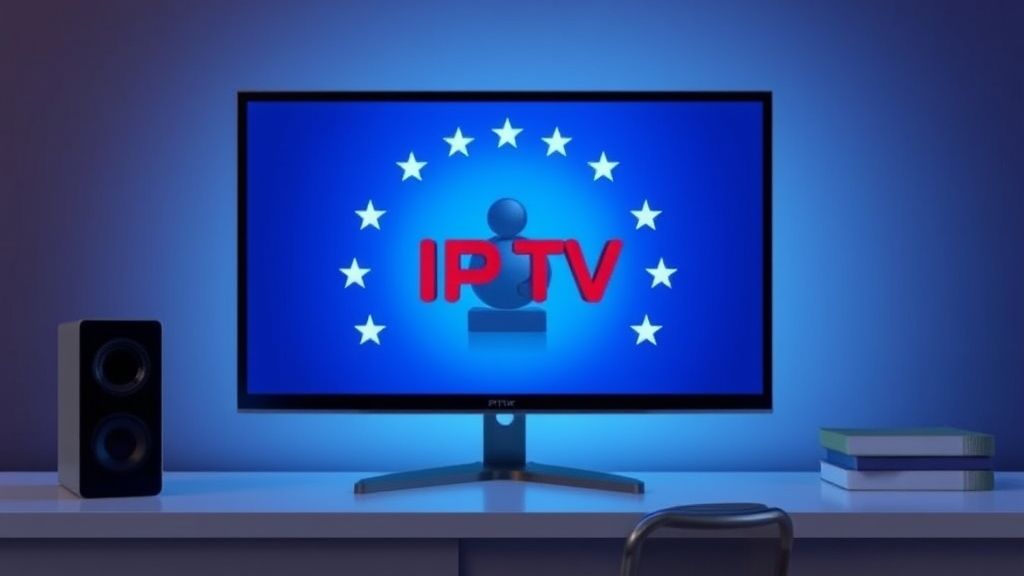
The legal status of IPTV in the USA is governed by a patchwork of federal laws, the most significant of which is the Digital Millennium Copyright Act (DMCA). Enacted in 1998, the DMCA was designed to update US copyright law for the digital age, making it illegal to circumvent technological measures used to protect copyrighted works. For IPTV, this means that providing or using a service that bypasses a broadcaster’s encryption or other digital rights management (DRM) is a clear violation of the law.
The DMCA gives copyright holders the power to issue “takedown notices” to internet service providers (ISPs) and hosting companies, demanding the removal of infringing content. This is a primary tool used by companies like the Motion Picture Association (MPA) and the National Association of Broadcasters (NAB) to combat online piracy. However, the DMCA’s focus was initially on the distributors and not necessarily on the end-user.
This created a perception among some consumers that while the service provider was breaking the law, they as the user were not at significant risk. This perception, however, has become increasingly inaccurate with recent legislative developments and more aggressive enforcement actions.
Another critical piece of legislation is the Protecting Lawful Streaming Act (PLSA), which was passed as part of the Consolidated Appropriations Act of 2021. This law was a game-changer. It elevated commercial streaming piracy from a misdemeanor to a felony offense, directly addressing the rise of large-scale illegal streaming operations.
The PLSA targets individuals and entities who “willfully, and for purposes of commercial advantage or private financial gain, offer or provide to the public a digital transmission service” that is “primarily designed or provided for the purpose of publicly performing” copyrighted works without authorization. While the law is explicitly aimed at the providers, its existence underscores the federal government’s commitment to cracking down on the illegal IPTV market. It is important to note that the law’s language, “commercial advantage or private financial gain,” means that a single individual streaming a movie for their own personal use is not the target. However, those who subscribe to a large, commercial IPTV piracy service
are supporting a felony-level criminal enterprise, which can still expose them to civil penalties and other risks. In the United States, the legal landscape is further complicated by the fact that the FCC also has a role to play in regulating IPTV services, particularly those that are part of a broader telecommunications offering. The FCC’s regulations on IPTV often pertain to consumer protection, network neutrality, and the payment of regulatory fees, which are required of all legitimate providers.
These legal frameworks make it abundantly clear that the technology of IPTV is legal. However, its application by unlicensed providers seriously violates federal law. This violation carries significant consequences.
4. Distinguishing Between Legal and Illegal IPTV Services
The fundamental distinction between a legal and an illegal IPTV service is rooted in licensing. Legitimate providers, such as YouTube TV, FuboTV, and Hulu + Live TV, have paid millions of dollars to acquire the rights to broadcast content from networks, sports leagues, and content creators. This ensures that their service is on the right side of the law and that the creators of the content are compensated for their work. These services operate transparently, with a clear business model, professional customer support, and robust infrastructure.
They typically have a recognizable brand, a professional website, and accept standard, traceable payment methods. Their pricing is reflective of the high cost of content licensing. According to TechTarget , IPTV is a growing market, and the legal players are key to its expansion. They operate under a strict legal framework, adhering to copyright laws and paying the necessary fees to the Federal Communications Commission (FCC) and other regulatory bodies.
These providers are often backed by major corporations and are subject to rigorous oversight, ensuring they comply with all applicable laws.
In stark contrast, illegal IPTV services operate without any of these licenses. They offer an enticing, often too-good-to-be-true, deal: thousands of channels, including premium sports and movie channels, for an incredibly low monthly fee. This is the biggest red flag.
The reason they can offer such a low price is that they have zero content licensing costs. They are simply pirating the streams from legitimate sources and redistributing them for a profit. These services often operate from servers located in foreign countries to evade US jurisdiction, and they may use a variety of deceptive practices. Their websites may look slick, but they often lack a physical address, a clear corporate identity, or transparent terms of service. They may also favor untraceable payment methods like cryptocurrency, a common indicator of illicit activity.
Furthermore, they are unable to provide a stable or high-quality service, often suffering from buffering, low resolution, and frequent outages because they lack the technical infrastructure of a legitimate provider. Their customer support is typically non-existent or minimal. The act of subscribing to and using such a service is directly supporting a criminal enterprise, one that is actively undermining the creative economy and violating copyright law.
The difference between the two is not just about price or channel count; it is about legality, ethics, and the risks associated with each choice.
5. Case Law and Enforcement: The Crackdown on Piracy
The legal battle against illegal IPTV services in the USA is escalating, with numerous high-profile cases setting significant precedents. The motion picture and television industries, along with sports leagues like the NFL and NBA, are aggressively pursuing legal action against both providers and distributors of pirated streams. A key aspect of this legal strategy is not just civil lawsuits seeking monetary damages but also working with law enforcement to pursue criminal charges.
The Protecting Lawful Streaming Act has empowered federal prosecutors to go after these large-scale operations with felony charges, leading to serious consequences for those involved. One notable example is the case against Beast TV, where the operator was ordered to pay millions of dollars in damages to content companies. This case, among many others, demonstrates the serious financial and legal repercussions for those who run these services.
Authorities are also targeting the infrastructure that supports these operations, including hosting providers, payment processors, and even social media platforms that facilitate the distribution of pirated content. The legal strategy is to choke off the illegal services from every angle, making it difficult for them to operate.
For the end-user, the risks are primarily civil. While it is rare for a single consumer to face criminal charges for watching a pirated stream, they are still engaging in copyright infringement, which can lead to a civil lawsuit. Many copyright holders have adopted a “notice and notice” system, where they send letters to ISPs, which in turn forward them to the user. These letters often contain a settlement demand, offering the user a chance to pay a fee to avoid a more costly lawsuit.
While these letters can be intimidating, they serve as a clear warning that the user has been identified as engaging in illegal activity. The risk to the user is compounded by the fact that many illegal services have been subject to law enforcement raids and seizures, which can result in the loss of service with no recourse for a refund. The crackdown also extends to the devices used to access these services, such as “jailbroken” or pre-loaded streaming boxes.
The courts have held that sellers of these devices can be held liable for contributory copyright infringement, even if they don’t host the content themselves, because they are actively enabling piracy. This legal landscape makes it clear that the once-perceived “low-risk” activity of watching an illegal IPTV stream is now a part of a much larger, and increasingly prosecuted, legal battle.
6. The Risks of Using Illegal IPTV Services
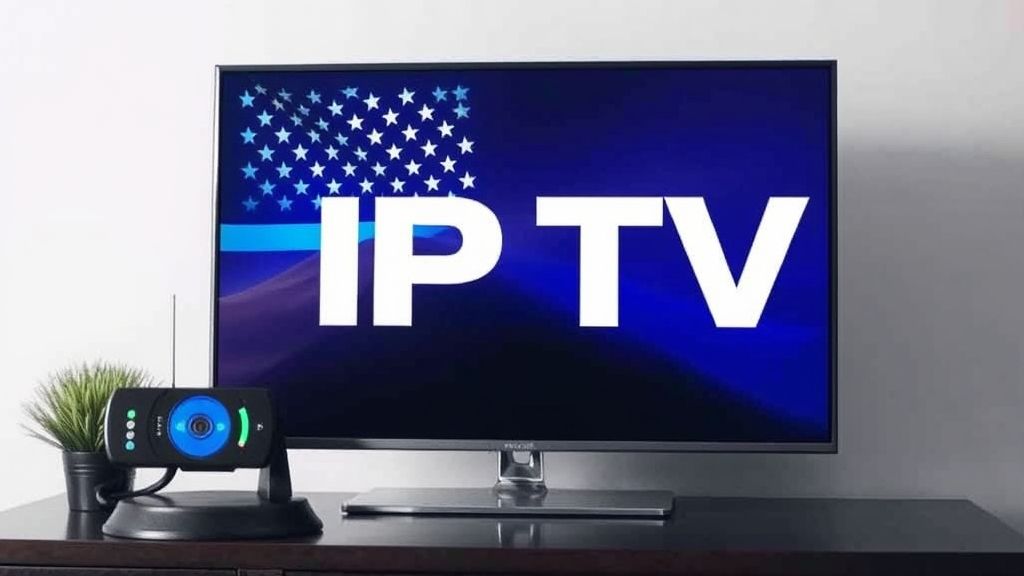
Beyond the obvious legal risks, using an illegal IPTV service poses a host of other significant dangers to the consumer. The primary concern is cybersecurity. These services are often operated by individuals or organizations with little to no regard for user security. When you subscribe, you are typically required to provide personal information, including your credit card details or other payment information. There is a high risk that this data could be compromised, leading to identity theft or financial fraud. Many of these services operate with no encryption, making it easy for hackers to intercept your data.
Furthermore, the apps or software required to access these services may contain malware, viruses, or spyware. When you install this software on your device, you are essentially giving a third-party access to your entire system, potentially exposing your passwords, personal files, and other sensitive information. These malicious programs can be used to steal your data, launch attacks on other networks, or even hold your data for ransom. The risk of device infection is a serious and often overlooked consequence of using these platforms.
Another major risk is the lack of reliability and quality. Illegal IPTV services, by their very nature, are unstable. They operate on a shoestring budget, with a weak infrastructure that is constantly under threat from law enforcement and copyright holders. This often results in a poor user experience, with frequent buffering, low-quality video streams, and sudden service outages. When the service goes down, there is no one to contact for support, and any money paid is lost with no possibility of a refund. The promise of thousands of channels for a low price is often a facade.
Many of the channels are simply a duplicate of others, or they are non-functional. The entire experience is a stark contrast to a legitimate service, which invests in a robust network to provide a stable, high-quality stream. Finally, by using these services, you are contributing to a criminal economy that undermines the legitimate entertainment industry. This directly harms the creators, artists, and technicians who work hard to produce the content you enjoy. It is an ethical consideration that goes beyond the immediate risks and impacts the entire creative ecosystem.
7. The Future of IPTV: Trends and Predictions
The future of IPTV in the USA is a tale of two trajectories. On one hand, the legitimate IPTV market is expected to continue its robust growth, driven by consumer demand for more flexible and affordable alternatives to traditional cable. We can expect to see continued innovation from major players like YouTube TV, Hulu + Live TV, and Sling TV, with new features, content partnerships, and pricing models designed to attract a wider audience.
The industry is moving towards a more a la carte model, where consumers can customize their channel lineups, and the integration of live TV with on-demand streaming services will become even more seamless. The technology behind IPTV, such as improvements in video compression and network efficiency, will continue to evolve, enabling higher-quality streams and a better user experience. According to the National Association of Broadcasters, the IPTV market is a key growth area. The future of legitimate IPTV is tied to its ability to provide a compelling, legal, and user-friendly experience that justifies its cost.
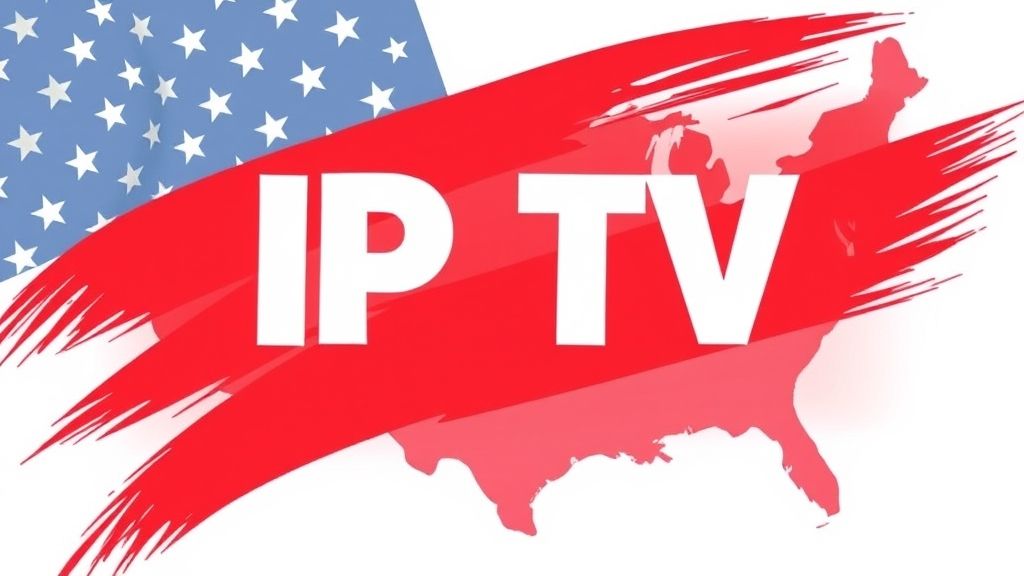
On the other hand, the illegal IPTV market is likely to face an even more aggressive and coordinated crackdown. The legal precedents and legislative changes of recent years have empowered copyright holders and law enforcement to take a more proactive approach. We can anticipate more legal challenges, more seizures of servers and infrastructure, and a broader targeting of those who profit from piracy. The Protecting Lawful Streaming Act, in particular, will serve as a powerful deterrent, potentially leading to more criminal prosecutions
. The industry is also exploring new technological solutions to combat piracy, such as advanced watermarking and real-time stream monitoring. However, as enforcement efforts become more sophisticated, pirates will also adapt, using new methods to evade detection. The battle between content creators and pirates will continue, but the legal and technological landscape is increasingly tilted in favor of the content owners.
The key prediction for the future is a clear and widening divide between the legitimate, professional IPTV services and the underground, high-risk illegal ones, making it easier for consumers to understand the ethical and legal implications of their choices.
8. How to Identify a Legitimate IPTV Provider
Given the complexities and risks, it is crucial for consumers to be able to distinguish between a legitimate and an illegal IPTV service. Here are some key indicators to look for. First and foremost, a legal service will have a brand name you recognize, often a subsidiary of a major media or telecommunications company, and a professional, well-designed website. The pricing will be a strong indicator; if a service is offering thousands of premium channels for a price that seems too good to be true, it almost certainly is.
Legitimate services have significant licensing costs, which are reflected in their subscription fees. For instance, you will not find a legal service offering all of HBO, Showtime, and a dozen regional sports networks for $15 a month. Another important factor is the payment method. Legal services accept standard credit card payments, PayPal, and other traceable, secure forms of payment. If a service is pushing you to pay with cryptocurrency, gift cards, or other untraceable methods, it is a massive red flag.
Furthermore, a legitimate provider will have a clear and transparent privacy policy and terms of service. They will provide professional customer support and have a physical address and contact information readily available. They are also compliant with regulatory bodies like the FCC, and they will likely have their compliance information publicly available. The quality of the service itself is a telling sign.
A legal service will provide a reliable, high-definition stream with minimal buffering. They will have a robust content library and clear channel listings. Illegal services often have a convoluted interface, frequent outages, and poor streaming quality. Finally, consider where you are getting the service from.
Legitimate providers advertise on mainstream platforms, while illegal services often rely on word-of-mouth, social media, or shady online forums. By carefully evaluating these factors, consumers can protect themselves from the legal and cybersecurity risks associated with illegal IPTV and support the legitimate creative economy.
9. Conclusion: Navigating the Legalities of IPTV
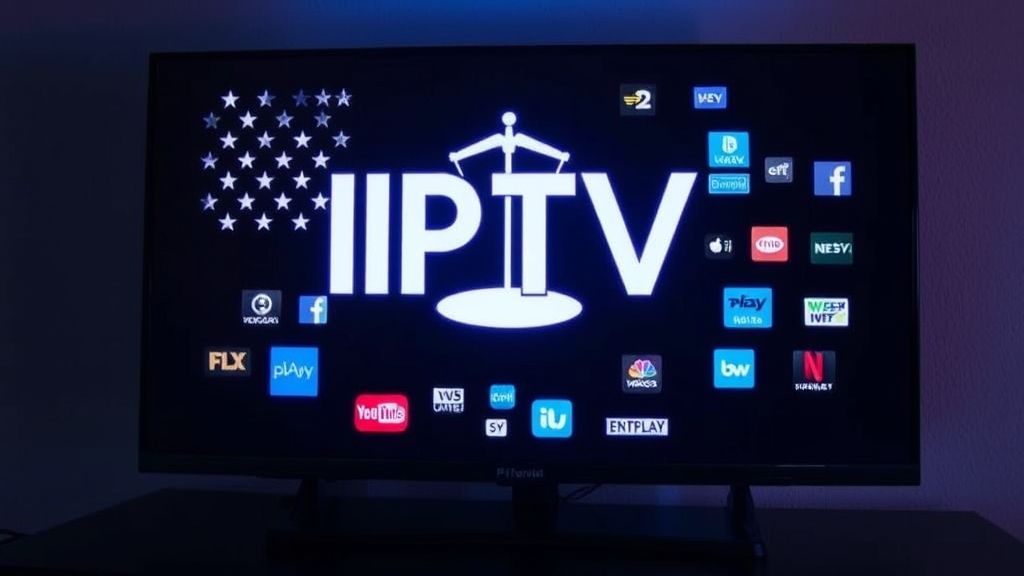
In conclusion, the answer to the question is IPTV legal in the USA is a nuanced one. The technology itself is perfectly legal and is the foundation for some of the most popular streaming and live television services in the country. However, the legality of any specific IPTV service is entirely contingent on whether or not it has the proper licenses and permissions to broadcast the content it is offering.
The vast majority of services that offer a huge number of channels at an impossibly low price are operating illegally and are engaged in large-scale copyright infringement. These services pose significant legal and financial risks to both the providers and the consumers who use them. Recent legislation, particularly the Protecting Lawful Streaming Act, has empowered law enforcement and copyright holders to take a more aggressive stance against these illicit operations, making the stakes higher than ever.
For the consumer, the choice is clear. Subscribing to a legitimate IPTV service is a safe, reliable, and ethical way to enjoy digital television. These services are compliant with US law, invest in quality infrastructure, and ensure that content creators are compensated for their work.
Conversely, using an illegal service not only exposes you to legal risks, but also to serious cybersecurity threats, including malware and financial fraud. The perception of IPTV as a legal gray area is a misconception; the legal lines are well-defined. By understanding the core differences, recognizing the red flags of an illegal service, and making informed decisions, consumers can navigate the world of IPTV with confidence, ensuring they stay on the right side of the law while enjoying the best of modern television.
The future of media consumption is undeniably digital, and the key is to embrace it through legitimate and secure channels.

12 Responses